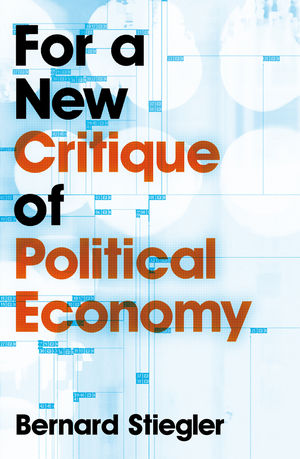Ned Rossiter: Organized Networks: Media Theory, Creative Labour, New Institutions (2006)
Filed under book | Tags: · creative industries, critique, democracy, governance, information society, intellectual property, internet, labour, media theory, networks, technology

The celebration of network cultures as open, decentralized, and horizontal all too easily forgets the political dimensions of labour and life in informational times. Organized Networks sets out to destroy these myths by tracking the antagonisms that lurk within Internet governance debates, the exploitation of labour in the creative industries, and the aesthetics of global finance capital. Cutting across the fields of media theory, political philosophy, and cultural critique, Ned Rossiter diagnoses some of the key problematics facing network cultures today. Why have radical social-technical networks so often collapsed after the party? What are the key resources common to critical network cultures? And how might these create conditions for the invention of new platforms of organization and sustainability? These questions are central to the survival of networks in a post-dotcom era. Derived from research and experiences participating in network cultures, Rossiter unleashes a range of strategic concepts in order to explain and facilitate the current transformation of networks into autonomous political and cultural ‘networks of networks’.
Publisher: Eelco van Welie, NAi Publishers, Rotterdam
In association with the Institute of Network Cultures, Amsterdam
ISBN 9056625268, 9789056625269
250 pages
Bernard Stiegler: For a New Critique of Political Economy (2010)
Filed under book | Tags: · consumption, critique, economy, labour, marxism, philosophy, political economy, politics, society, technics

“The catastrophic economic, social and political crisis of our time calls for a new and original critique of political economy – a rethinking of Marx’s project in the very different conditions of twenty-first century capitalism.
Stiegler argues that today the proletarian must be reconceptualized as the economic agent whose knowledge and memory are confiscated by machines. This new sense of the term ‘proletarian’ is best understood by reference to Plato’s critique of exteriorized memory. By bringing together Plato and Marx, Stiegler can show how a generalized proletarianization now encompasses not only the muscular system, as Marx saw it, but also the nervous system of the so-called creative workers in the information industries. The proletarians of the former are deprived of their practical know-how, whereas the latter are shorn of their theoretical practice, and both suffer from a confiscation of the very possibility of a genuine art of living.
But the mechanisms at work in this new and accentuated form of proletarianization are the very mechanisms that may spur a reversal of the process. Such a reversal would imply a crucial distinction between one’s life work, originating in otium (leisure devoted to the techniques of the self), and the job, consisting in a negotium (the negotiation and calculation, increasingly restricted to short-term expectations), leading to the necessity of a new conception of economic value.
This short text offers an excellent introduction to Stiegler’s work while at the same time representing a political call to arms in the face of a deepening economic and social crisis.”
Publisher Polity, 2010
ISBN 0745648045, 9780745648040
100 pages
PDF (updated on 2020-8-7)
Comment (0)Fadaiat: Freedom of Movement – Freedom of Knowledge (2006) [Spanish/English/Arabic]
Filed under book | Tags: · citizenship, gibraltar, globalisation, labour, migration, network society, technology

“The straits of Gibraltar is a mirror-territory of the transformations taking place in the world today: globalisation, migrations, borders, citizenship, network-society, communication, technologies… The border is a crossed-place, an extensive territory of life and mobile confinements where multiple social practices put pressure on established limits. New spaces and relationships emerge from and through the border between southern europe and northern africa.
The book and all it entails plays an important and irreplaceable role, but it is just a fragment of a process that goes far beyond it in terms of both time and subject matter. Here it opens new possible becomings that were mere conjectures until it was written; it is a line with relative autonomy running parallel to the other relatively autonomous part-projects and establishing fruitful exchanges among them, which in turn become an opportunity for new projects.
Through this process, and specially the publishing of this book, we want to contribute to the existence of new spaces of social and technological hybridisations that, by forging new paths, continually (re)invent world(s).”
A book was developed in connection to event Fadaiat: Freedom of Movement – Freedom of knowledge.
Authors: Pilar Monsell Prado, Pablo de Soto Suárez, Joan Escofet Planas, José Pérez de Lama, Marta Paz Naveiro, Mónica Lama Jiménez, Helena García Rodríguez, Sergio Moreno Páez
Published by Observatorio Tecnológico del Estrecho
209 pages
License: Aire Incodicional
PDF (Part 1: visuals; no OCR)
PDF (Part 2: articles)

